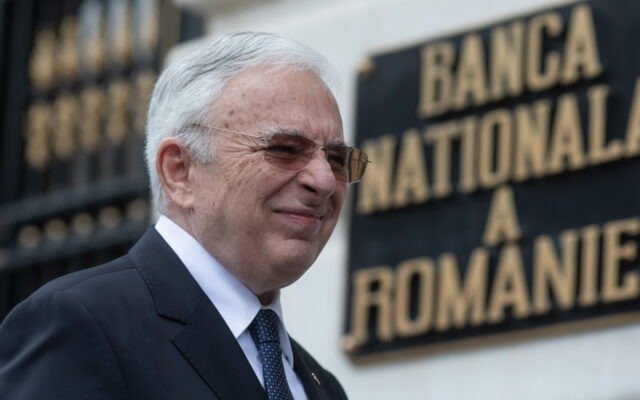Two far-right parties from NATO countries have claimed portions of Ukrainian territory, expressing their desire to annex them and, possibly, to exploit a hypothetical victory of Russian President Vladimir Putin over Ukraine, according to Rador Radio Romania.
Last week, leaders from the Alliance for the Union of Romanians (AUR) and Hungary’s Our Homeland Movement both invoked the possibility of annexing parts of Western Ukraine, justified by centuries-old territorial claims. These claims were made on the eve of the two-year anniversary of the Russo-Ukrainian war.
Newsweek contacted the Ukrainian foreign ministry via email to comment on the claims of the two parties.
Claudiu Târziu, one of the AUR leaders, said in a speech, „We will not truly be sovereign until we reintegrate the Romanian state within its natural borders.” He claimed these include Bessarabia, Northern Bukovina, and Transcarpathia – regions in Western Ukraine. These Ukrainian regions [sic! Hungarian – editor’s note] are home to significant Romanian and Hungarian minorities.
„Bessarabia must come home,” Târziu declared. „Northern Bukovina cannot be forgotten, Southern Bessarabia, Hertsa region, Transcarpathia [sic!], everything that was and is Romanian land must return within the borders of a single state.” He added, „Our goal is for Romania to be among the world’s leading countries.”
László Toroczkai, leader of the Our Homeland Movement, also set his sights on Transcarpathia, which represents the westernmost oblast of Ukraine, Zakarpattia.
„Regarding the war in Ukraine, our message is very simple: immediate ceasefire, peace, and negotiated solution,” Toroczkai stated in a video posted on the party’s website.
„If the war ends with Ukraine losing its statehood, because this is also a possibility, then – as the only Hungarian party adopting this stance – allow me to announce that we claim Transcarpathia.”
Such claims are not new, especially in the nationalist far-right sphere of both countries. However, these ideas extend even to the centrist area. Hungarian Prime Minister Viktor Orbán, for example, infuriated both Romania and Hungary in November 2022 by wearing a football scarf with an expanded map of Hungary.
Oleksandr Merezhko, president of the foreign affairs committee of the Ukrainian parliament, told Newsweek that these simultaneous territorial claims worry Ukraine due to the timing of their emergence.
„Russia is trying to launch an offensive,” Merezhko said. „This is exactly what Putin wants. I do not exclude that these statements might be somehow coordinated. Concurrently, I have not yet seen – so far – firm reactions from the authorities of Hungary and Romania to these unacceptable declarations.”
„Such statements are dangerous especially now,” Merezhko said. „They undermine trust.”
The Kremlin frequently tries to use far-right and far-left parties in Europe to destabilize Western capitals. George Simion, co-leader of AUR, has been accused by Ukrainian intelligence of past links with similar Russian services.
Both AUR and Our Homeland Movement typically hold pro-Russian views. The latter describes Ukraine as an unfriendly country and has urged Kyiv to cede the territories occupied by Moscow in exchange for peace. AUR has opposed Romanian military support for Ukraine, arguing that the war „is not ours.”
Ukraine’s strained relations with Hungary predate the invasion, being undermined by a long-standing dispute over the rights of the Hungarian minority in Western Ukraine.
Tensions have worsened following the Russian invasion, given Viktor Orbán’s role as a „saboteur” within the EU and NATO. The right-wing populist has continuously tried to block or dilute EU sanctions and is still blocking Sweden’s accession to NATO.
Bucharest has been a crucial partner of Kyiv after the invasion, supplying a wide range of weapons and other goods, and serving as a vital intermediary for Western aid and Ukrainian exports.
This pro-Ukraine stance could be jeopardized this year and the next, given the upcoming presidential and general elections. AUR is rated second in the polls after the Social Democratic Party, which, with the help of the center-right National Liberal Party, leads the governing coalition of Prime Minister Marcel Ciolacu.
Source: NEWSWEEK / Rador Radio Romania



